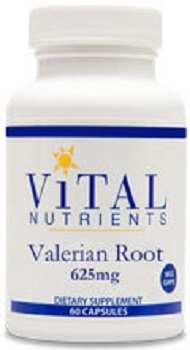When we think of insomnia, we often think of a person pushed to the brink of sanity that tosses and turns each night in bed without getting a wink of sleep. Could it be stress? Time zone changes? Imbalance of minerals? Perhaps there is more to the Princess and the Pea fable.
The 1835 fable, by Hans Christian Andersen, suggested that the true princess was the one who felt the pea under her twenty feather beds, but was this the real reason why the princess tossed and turned all night long?
Many struggle to get the sleep we want because of specific biological issues that need to be addressed. Natural sleep aids can help almost anyone improve their sleep, but each have different uses and the right one for your situation depends on what keeps you up. It’s worth learning which is best for you, because even if your sleep feels adequate now, imagine how you would feel if you had a great night’s sleep every night.
Why should I be concerned about my sleep?
Stress reduces your body’s ability to sleep
One common source of sleep difficulty results from elevated cortisol hormone levels at all times throughout the day. There is a normal pattern where the cortisol levels are higher in the morning and gradually decrease to their lowest levels in the evening. As our levels decrease, we begin to relax and rest. This allows the body to maintain a regular sleep cycle, or diurnal rhythm.
Cortisol regulates our metabolism (which plays a huge role in weight gain), our insulin and blood sugar levels, our sex hormone production, our blood pressure, bone formation, wound healing, as well as our immune and digestive systems. When in a normal rhythm, we feel sharp, clear, and energized early in the day, and are able to get the sleep we need at night to take on the challenges of life.
However, stressful situations late in the day (and caffeine) creates more cortisol and disrupt this cycle. Ongoing stress can be unpleasant and include situations such as a persistent worry about losing a job, a work deadline, an ongoing family issue or even an acute “fight or flight” type response that helps us to respond quickly to dangerous situations.
Ultimately, if long term stressors continue and your cortisol levels do not decrease in the evenings as they should, it can lead to insomnia and other significant health issues. Initially, prolonged increased cortisol may be suspected if you are noticing abnormal levels of anxiety, feeling unsettled or unmotivated, fatigue, or even depression. High cortisol symptoms may also include high blood pressure, rapid weight gain mainly in the face, chest, and abdomen, skin changes and muscle weakness. Stress, which increases cortisol, has a significant impact on our many systems in our body.
Sleep reduces mistakes and improves reaction time
A study of professional drivers, published in Seminars in Neurology, found that reductions in performance accuracy and reaction time after 28 hours of sleep deprivation were similar to those who have a blood alcohol level of 0.10 which would exceed the legal intoxication level in all 50 states. The study also said that after just 16 waking hours, responses were similar to someone who had a 0.05 to 0.08 blood alcohol level. Research from The Lancet came to similar conclusions after discovering that one sleepless night contributed to a 20-32% increase in the amount of errors that surgeons made.
Sleep helps us lose weight
Researchers have long believed that sleeplessness leads to poor food choices, and a study from Annals of Internal Medicine confirms this theory by finding that a long-term lack of adequate sleep disrupts our appetite-regulating hormones, leptin and ghrelin, which can lead to obesity. A study from the University of Pennsylvania found similar results when they noticed that adults eat about 500 additional calories during late-night hours when they are sleep restricted.
Sleep can also help protect us from numerous chronic diseases, reduce migraines, and avoid vision problems. Getting good sleep can help us in so many ways, but quality sleep can be hard to come by for many. Some studies show that certain people may need at least 10 hours of sleep to be at their best. Many celebrities and athletes even claim to sleep up to 15 hours a day when performing. Six or seven hours a night just isn’t good enough for most people and many need even significantly more than the standard eight-hour recommendation.
Which supplements can help?
5-HTP is ideal for people with insomnia related to depression or anxiety
If you have trouble falling asleep due to depressed or anxious thinking, taking 5-HTP may help. A common link between depression, anxiety, and insomnia is serotonin deficiency. Serotonin is found naturally in the human body and is a neurotransmitter that carries nerve signals. 5-HTP is well-known as a natural alternative to anti-depressants, but it also works as a sleep aid for the same reason it boosts mood – by increasing serotonin levels. Unfortunately, serotonin cannot be taken directly as a supplement, although there are many drugs that prevent the reduction in serotonin (SSRIs) such as Paxil®, Prozac®, Zoloft®, Celexa® and Lexapro® – but not naturally.
Do you ever feel tired after eating all that turkey on Thanksgiving? 5-HTP gives us a similar effect because turkey contains tryptophan that is then converted into 5-HTP, which is then eventually turned into serotonin. It’s not fully understood how serotonin works in regard to sleep, but a large part of its importance seems to stem from its ability to calm us down and prepare the body for sleep.
Research from Alternative Medicine Review found that supplemental 5-HTP is well-absorbed from an oral dose (100-300 mg before bed) to effectively increase the production of serotonin. 5-HTP Plus, by Douglas Laboratories, is a great choice because it includes highly absorbable forms of 5-HTP and vitamin B6, which is one of the vitamins necessary to convert 5-HTP into serotonin. Serotonin is also important for sleep because it contributes to the creation of another key sleep hormone – melatonin.
Melatonin can help travelers/those with jet lag
Melatonin is commonly used as an all-purpose natural sleep aid, but research is conflicted on whether or not it is effective when used this way. We do know, however, that melatonin is likely a good sleep supplement for travelers. The Cochrane Database of Systematic Reviews published a comprehensive review of studies regarding melatonin and sleep and found that melatonin is highly effective in preventing or reducing jet lag.
Melatonin’s primary function in the body is to regulate night and day cycles (also called sleep-wake cycles). Darkness makes the body create more melatonin, which tells the body it needs to begin its preparations for sleep. When it is light, less melatonin is made and this serves as the body’s signal to prepare for being awake.
Supplemental melatonin is believed to work by adjusting your internal clock when you take it, which makes it great for getting to sleep at an earlier time than you are accustomed. Next time you travel eastward (you don’t need it for westward travel), take melatonin 20 minutes prior to your target bedtime at your destination. If your sleep cycle is “off,” for whatever reason, try Melatonin 1mg by Douglas Laboratories. Only a low dose of melatonin is needed, such as 1mg, to be effective and using higher-than-necessary doses may lead to adverse effects.
Magnesium for the athletically inclined
Most people are deficient in magnesium, which is a crucial mineral for a wide array of biochemical reactions in the body; most notably bone, brain, and muscle function. A study from the Journal of the American College of Nutrition discovered that 68% of American adults consume less than the recommended daily allowance of magnesium and that 19% of American adults don’t even get half the magnesium that they should. Athletes, in particular, are often advised to supplement with magnesium to prevent muscle cramps Research from the International Journal of Research in Medical Sciences confirms magnesium’s ability to help us sleep. This research found that supplementation of magnesium appears to improve sleep quality, sleep time, ability to fall asleep, and early-morning awakening. Magnesium citrate is an affordable and highly-absorbable form of magnesium, so I like Magnesium (citrate) by Pure Encapsulations. To learn more about magnesium and which form is ideal for you, read Do you know the magnesium form your body needs?
Valerian is good for general use
If none of the other supplements spoke directly to your condition, and you’ve already checked under your mattress for a pea, valerian root extract is likely your best option. Valerian has been used as a medicinal herb for addressing insomnia, nervousness, trembling and other conditions, since at least as far back as ancient Greece and Rome. Scientists aren’t sure exactly how it works, but speculate that supplementing with valerian increases the brain’s level of a chemical called gamma aminobutyric acid (GABA). A study from NeuroScience determined that activation of GABA sensors promotes sleepiness.
The American Journal of Medicine recently analyzed the existing studies and research on valerian and found that valerian can improve sleep quality and is a better choice than many other sleep aids because of the lack of a “hangover” effect that follows most pharmaceutical prescriptions. Pharmacopsychiatry also endorsed valerian’s effectiveness by concluding that valerian supplementation has positive effects on sleep.
Valerian is most effective when taken long-term, so have patience with it. Many of the studies that prove valerian’s effectiveness note that single doses of valerian do not do much; the benefits come after multiple uses. A high-potency valerian supplement like Valerian Root by Vital Nutrients, consistently taken for an extended period of time each night before bed, should help you feel well-rested and satisfied with the amount of sleep you are getting each night.
Help your sleep aid help you
There are other natural ways to help you get to sleep as well. As tempting as it is, avoid sleeping in or staying up late on weekends or days off. Going to bed and waking up at a consistent time is crucial for maintaining your internal sleep/wake clock. Exercise early in the day and the right dietary habits, such as avoiding coffee and caffeine past mid-afternoon and big or spicy meals before bed, can also help.
Don’t exercise late in the day, as it will increase that naturally occurring cortisol in your body that will make you stay awake. Also remember to put away all electronics in the last hour before bed, since the light from these devices can stimulate the brain when it should be calming down. Fortunately, in March 2016, Apple was the first to introduce enhancements to smartphones and tablets that have the ability to (based upon the clock and geolocation) automatically shift the colors on the display to the warmer end of the spectrum so as not to impact your circadian rhythm. Other electronics with screens such as TVs are sure to follow as this becomes a standard feature.
For a small part of the population, these kinds of tips and tricks are sufficient for addressing sleeplessness. But for many people dealing with sleep difficulties, these suggestions are not enough. A natural sleep aid can be a real game-changer for those who need help sleeping, but you have to take the proper kind. Finally, if you are a princess and can feel every pea under your mattress, consider a new mattress! I hope this information is useful to you, and if you have any questions regarding the concepts discussed here or anything else, you can reach our customer service team at customerservice@oakwaynaturals.com or you can call them at 888-460-3091.
Until next time, stay healthy!
Yours in health,
Dr. Gregg Gittins













Comments are closed.